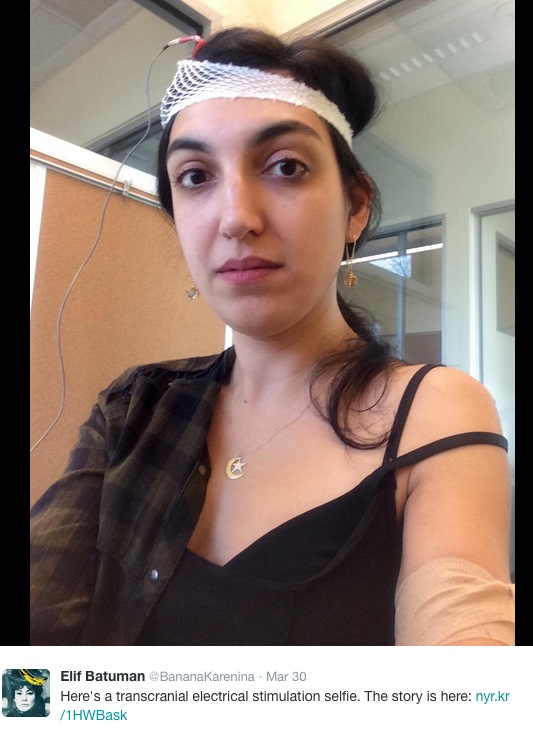Adventures in Transcranial Direct-Current Stimulation author Elif Batuman
Excellent! We met Jim Fugedy in podcast episode #2
It is the rare human who doesn’t wish to change something about his or her brain. In my case, it’s depression, which runs on both sides of my family. I’ve been taking antidepressants for almost twenty years, and they help a lot. But every couple of years the effects wear off, and I have to either up the dose or switch to a different drug—neither process can be repeated indefinitely without the risk of liver or kidney damage. So although my symptoms are under control for now, I worry, depressively, about what will happen when I exhaust the meds. As I was researching this piece, my attention was caught by a number of randomized controlled trials showing a benefit from tDCS for depression. (The data are insufficient to allow definitive conclusions, but larger trials are in progress.) I was almost embarrassed by how excited I felt. What if it was possible to feel less sad—to escape the deterministic cycle of sadness? What if you could do the treatment yourself, at home, without the humiliation and expense of doctors’ visits? I asked Vince Clark whether any private physicians use tDCS outside of a research setting.
via Adventures in Transcranial Direct-Current Stimulation – The New Yorker.
